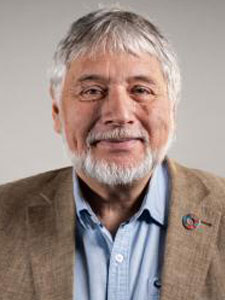Ensuring excellence: the ERC’s dedication to rigorous evaluation

The ERC is dedicated to advancing frontier research through a competitive, pan-European competition that places the utmost importance on impartiality and transparency in the selection process. This has led to the establishment of a peer-review system that enjoys high respect in the scientific community, and serves as an inspiration for national funding agencies when shaping their review procedures. The ERC's peer review is designed to identify exceptional proposals across the entire range of scientific disciplines, guided by a focus on scientific excellence.
In 2024, the Work Programme of the ERC introduces changes to the evaluation process, with a greater emphasis on project quality and the ideas behind a project than an applicant's CV and track record. The CV and track record templates are merged and simplified, allowing applicants to include brief narratives for more clarity. The scoring system is adjusted to ensure promising proposals are not hindered by resubmission restrictions. Scientific excellence remains the sole criterion for ERC frontier research grant evaluation.
The evaluation process relies on panels, each made up of about 15 accomplished, independent researchers, led by a designated chairperson. The selection of panel members is meticulously overseen by the ERC Scientific Council, with emphasis on their scientific standing and based on criteria set by the ERC Scientific Council Standing Committee on Panels. This underscores the ERC's dedication to professionalism in panel member selection and expertise balance within each panel.
The ERC's reputation appeals to scholars and attracts esteemed panellists from across the world to contribute to the evaluation process. The panel chair and members invest significant time in the review process. For the ERC grants for individual researchers, each panel convenes twice for a comprehensive two-stage evaluation, which begins with panel members adopting a generalist perspective, assessing proposals broadly, but also based on their expertise in the relevant research field.
This is followed by engaging independent external experts to assess the highest-ranked proposals. These external assessments are used in the panel discussions during the second and final phase. Additionally, during this phase, panel members conduct interviews with applicants, framing their inquiries and conveying questions based on their own expertise and the reviews provided by the external experts (also known as the “remote reviewers”).
The ERC Scientific Council remains unwavering in ensuring high quality throughout the process, particularly in the feedback provided to applicants. Applicants often place importance on the constructive feedback provided by panellists, as it can profoundly influence their decisions regarding potential reapplication and proposal improvement.
The Scientific Council plays a crucial role in maintaining excellence among panel members. The commitment and expertise of the Scientific Officers who work at the ERC Executive Agency is invaluable, particularly in supporting the evaluation process. They continually assess the need for a well-rounded expertise coverage in the panels, ensuring that emerging scientific trends in submissions are appropriately covered and that proposals are treated fairly and impartially during the evaluation. The Scientific Council also has established rules to avoid that panels have biased geographical and institutional memberships, so that no more than two members are from the same country and no more than one member can come from a specific institution.
Clear rules govern the participation of panel members in ERC evaluations and their eligibility to apply for ERC grants. Panel members can serve in alternating years for up to four terms and are not allowed to apply for an ERC grant in the same year and panel that they serve as panel members. These rules are in place to uphold fairness and impartiality, and they prevent potential conflicts of interest in the evaluation process.

Vice-President of the ERC's Scientific Council
Member of the ERC’s Standing Committee on Panels




